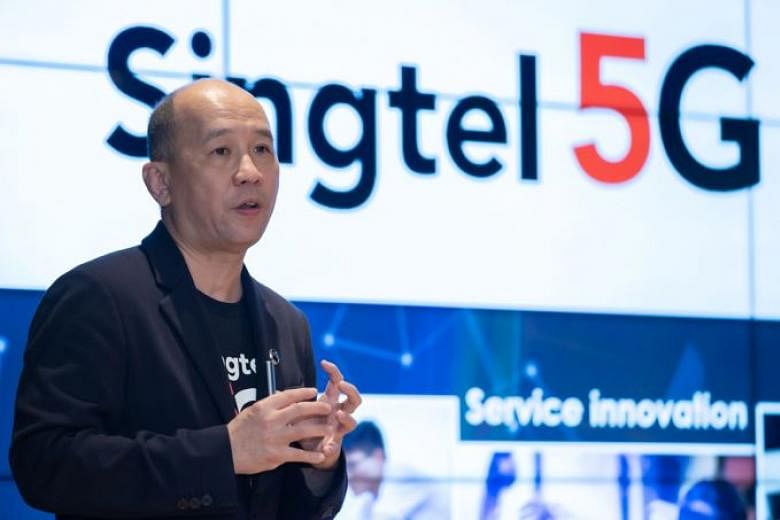SINGAPORE (THE BUSINESS TIMES) - Singtel is pacing its investment for 5G deployment, and is on track to roll out its 5G network coverage to half the island in two years' time and nationwide by 2025, said Mr Yuen Kuan Moon, Singtel's chief executive for its Singapore consumer operations.
The telco will be looking at its investment "in a very cautious manner" to make sure that it is "serving customers' needs" and at the same time, "giving (it) the return on (its) investment", he said on Wednesday (Sept 9).
Speaking to the media at the unveiling of the telco's first 5G use case called 5G Now @ Unboxed, a round-the-clock unmanned pop-up retail store, Mr Yuen added that he believes the cost of investment will also come down over time, addressing concerns over the high costs of 5G infrastructure.
He said: "During the first few years of technology refresh, there'll be a bit higher investment that is necessary (for) the transition, but over time, the investment will come back down again... With economies of scale, global deployment, the cost of deploying 5G will come down over time."
Given that Singapore is a small island, a "pretty decent network" is likely to be built up "within two to three years".
While the telco has yet to disclose how much it will pour into building up its 5G capacity, its rival StarHub disclosed last month that its initial investment into its half of the 5G network deployment is estimated to be about $200 million over five years. StarHub is partnering Keppel-owned M1 to roll out a 5G network.
The unveiling of Singtel's 5G-powered pop-up store comes a week after the telco said it has launched its 5G non-standalone (NSA) network.
Singtel said its NSA network is capable of delivering 5G speeds of more than one gigabit per second by harnessing 3.5 gigahertz frequency from its newly expanded spectrum holdings, as well as its existing 2,100 megahertz spectrum.
In the store, self-serve kiosks are available for customers to carry out transactions such as recontracting mobile plans.
If needed, a 5G virtual assistant - which is facial recognition-enabled and can detect customers' emotions - is available for assistance.
They can also purchase accessories for 5G phones, among other things.
Credit Suisse analyst Johnson Loh said that the use of 5G can help retailers "better adapt and improve personalisation" for customers.
"The virtual reality and augmented reality technology, coupled with artificial intelligence through 5G networks, could also enhance predictive technology and offer shoppers more informed suggestions on products," he added.
Despite the economic slump as a result of the Covid-19 pandemic, which may slow down the uptake of such 5G technology, Singtel's Mr Yuen said that the telco remains a service provider that "covers the entire spectrum of the population".
He added: "There will be a segment who is actually doing very well... (and) want to experience a new service, then we should be catering to that... I don't think we should slow down technology just because of the economic downturn."

